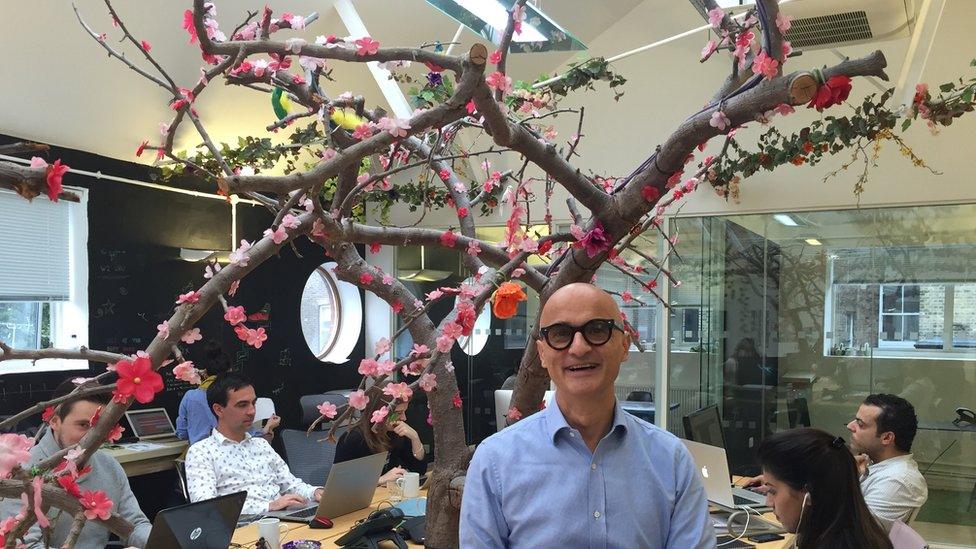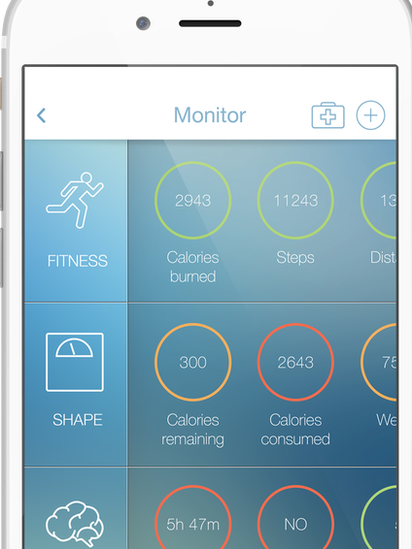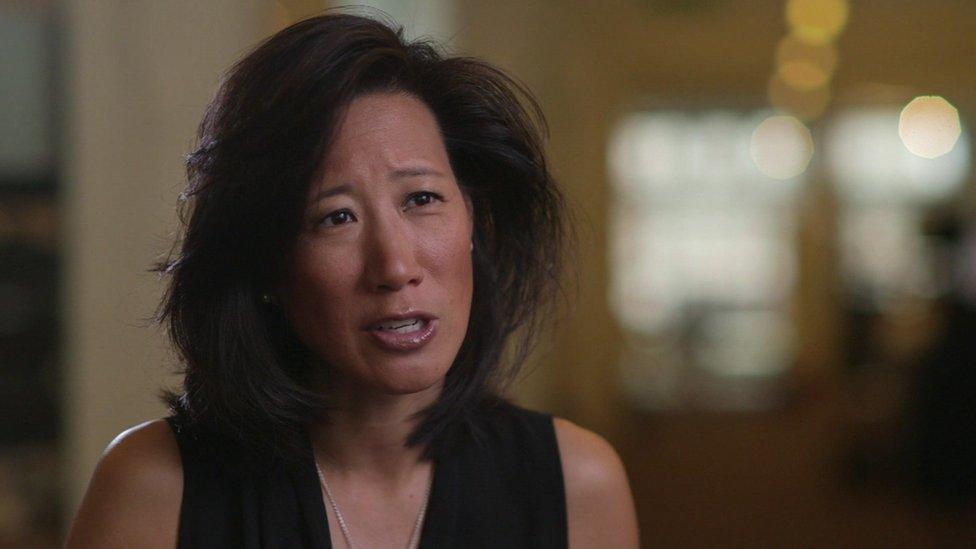How mobile devices are changing healthcare
- Published
Will services offering consultations with doctors on mobile devices change the way we use medical services?
Ali Parsa believes the mobile phone might be the most important medical piece of equipment we have and wants to use it to change the face of healthcare.
"If you have a little question you can type it in," he says, showing off his app, Babylon Health.
"We'll have a doctor respond to your question in minutes."
Babylon Health is a subscription service which you access via a smartphone app.
For a monthly subscription of £4.99 ($7.55/€7.99) customers can get unlimited medical consultations by text and video. Once you've had an online exchange, a doctor can send a prescription to your nearest pharmacy and arrange a referral for a follow-up consultation.

Ali Parsa started Babylon while running the UK's first private hospital in the public National Health Service
"If you had something wrong and wanted to see a doctor you used to take half a day off and go to the surgery," Dr Parsa says.
"Today you can make an appointment in seconds, see a doctor in minutes and get an answer straight away."
Already, 250,000 people are using Babylon Health in the United Kingdom and Ireland either as direct subscribers or through a private medical insurance policy.
Real world or mobile?
But can seeing a doctor on your phone compete with visiting one in person?
Dr Maureen Baker, who chairs the Royal College of General Practitioners, the professional membership body for family doctors in the UK and overseas, says: "Mobile phone apps and medical devices have huge potential to support patients and the health professionals who provide their care."
But she adds: "We have concerns about the patient safety implications. Patients will be having consultations with GPs who are unfamiliar with - and won't necessarily have access to - their medical history, or information about drugs that they have been prescribed."
"Medical histories provided by patients themselves will rarely be as comprehensive as those held by their family doctor. There are also many signs and symptoms that GPs look out for when making a diagnosis that the patient might not think to raise."

Babylon's app also uses the health data collected by smartphones
Babylon says that if a patient wants to see a doctor they have already seen on the app they can request it but they may have to wait longer to see them.
The company adds: "Records of all our patient consultations are stored so GPs can look over the history before they speak to a patient. Patients can also access videos and notes from their previous consultations."
Doctors and patients can also access the medical and health data that many phones now collect.
Global ambitions
The idea for Babylon came while Ali Parsa was working in the British health system.
"I used to run hospitals," he says. "But most healthcare doesn't have to do with hospitals."
In 2012, , external as the boss of the first privately run hospital in Britain's National Health Service and that hospital has since been returned to being run by the NHS.
However, the NHS is offering Babylon Health to customers in limited areas and the company tells the BBC that other tie-ups with the service will be announced imminently.
Babylon is also looking beyond the UK and Ireland and plans to launch in East Africa in 2016.
"Fifty per cent of the world's population don't have access to the very basic healthcare that they need," Ali Parsa says.
"Yet we have a device that they all carry, on which we can deliver healthcare to wherever they are."

Eileen Burbidge of Passion Capital says investors are interested in health technology because the potential market is unlimited
The global application is part of what is making the business investment community interested in Babylon and its competitors.
"As an investor, healthcare or med-tech is hugely important to us," says Eileen Burbidge from Passion Capital.
"The addressable market is the whole world - it's every individual in the world. They're going to need healthcare, they require healthcare or they'll benefit from healthcare.
"A company like Babylon Health, by using mobile devices and mobile technology, is hugely interesting because it's not as capital intensive, you don't require quite as much investment as a life-sciences business or a pharmaceutical company."
But competition is intensifying.
"Self-serve healthcare on your mobile phone sounds massively appealing," says Ben Wood of CCS Insight. "But the challenges are: can it scale? And is this the company which is going to break through, as so many people are chasing the opportunity?"
Ali Parsa is determined to turn Babylon into a global player.
"The biggest problem is to get London to think like Silicon Valley," he says.
"If today we can deliver 95% of your healthcare over your mobile phone, imagine what we can do in three years' time, five years' time, 10 years' time."

The Digital Disruptors is a series about the people and companies shaking up business with new technology.
